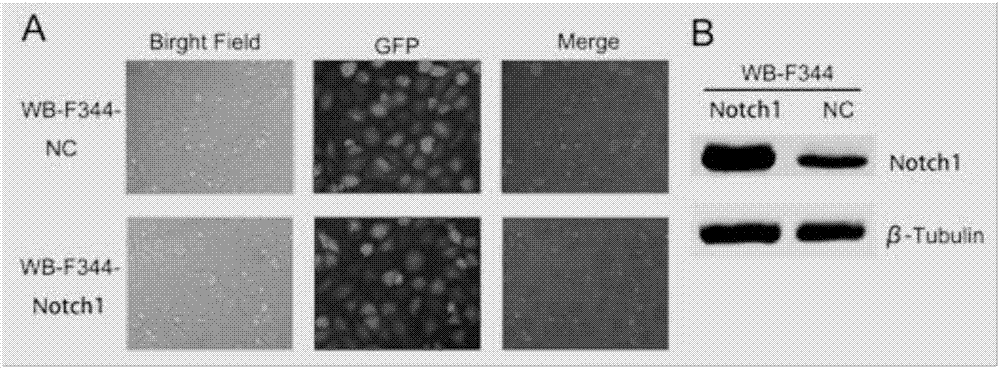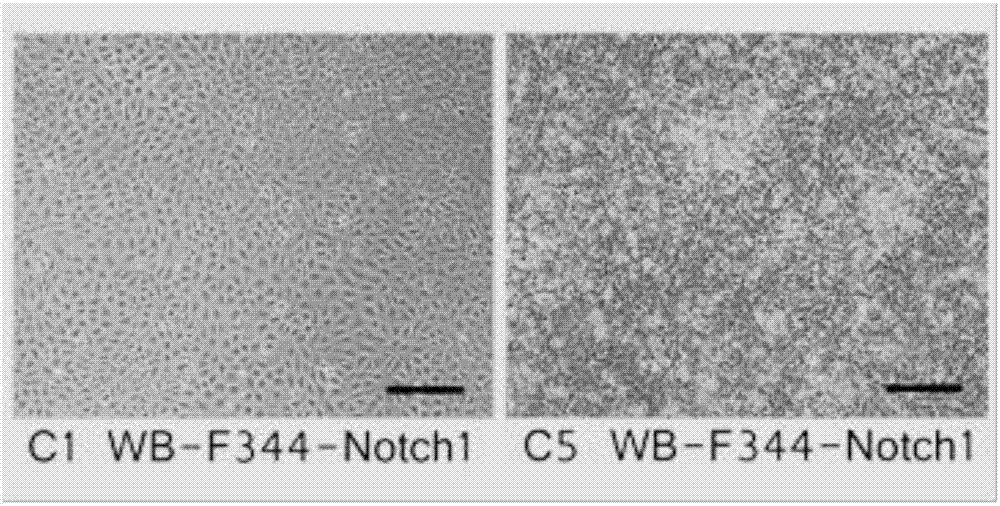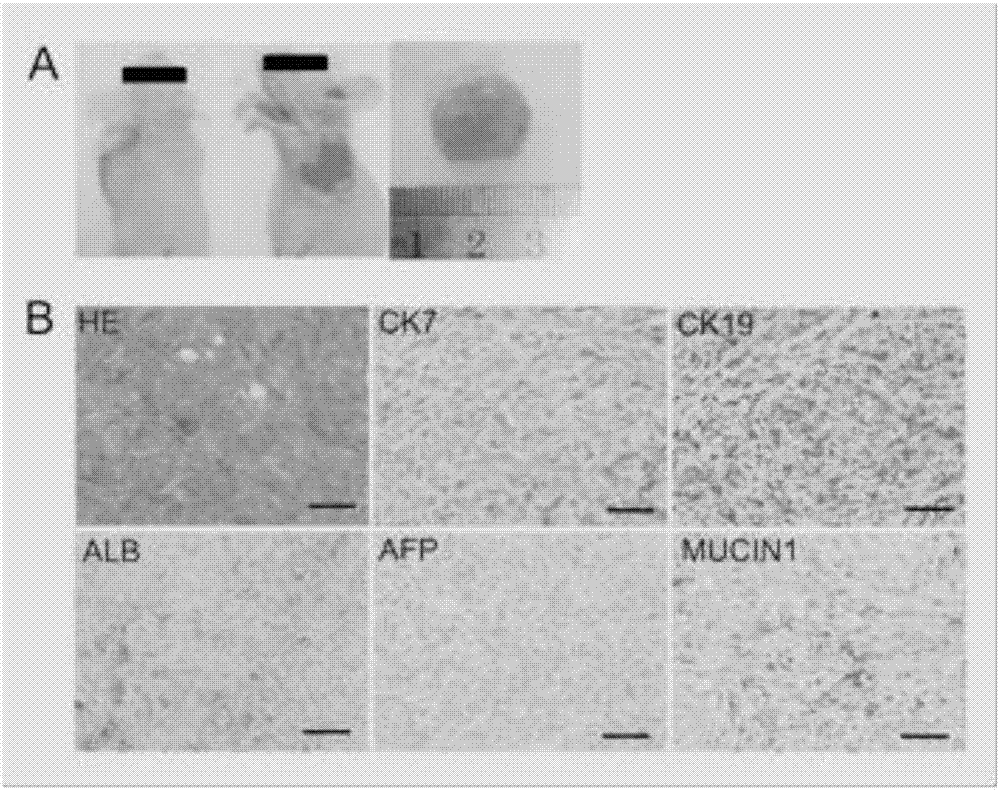Method for inducing adult liver stem cells for transforming to high metastatic liver cancer cells and corresponding cells
A technology of liver stem cells and liver cancer cells, applied in tumor/cancer cells, chemical instruments and methods, non-embryonic pluripotent stem cells, etc., can solve the problems of long processing time, poor tumorigenicity, and low rate of spontaneous tumor formation
- Summary
- Abstract
- Description
- Claims
- Application Information
AI Technical Summary
Problems solved by technology
Method used
Image
Examples
Embodiment 1
[0038] This example provides a method for inducing transformation of adult liver stem cells into highly metastatic liver cancer cells, and provides a stable liver cancer cell with short tumor formation time, good tumorigenicity, and lung metastatic ability.
[0039] The concrete experimental scheme of this embodiment is as follows:
[0040] S1. Expansion and culture of Fisher 344 rat adult liver stem cells WB-F344
[0041](1) Recovery of WB-F344: routinely sterilize the ultra-clean workbench, add 10mL DMEM medium into a sterile 15mL centrifuge tube, take out a tube of frozen rat adult hepatic stem cells WB-F344 from the liquid nitrogen tank, and immediately Place in a water bath at 37°C and oscillate to observe the thawing of the cell suspension. After about 2 / 3 of the thawing, spray the cryopreservation tube with 75% alcohol and put it into an ultra-clean bench. Use a straw to remove the cell suspension. Transfer to a centrifuge tube containing 10mL of medium, blow it evenly...
PUM
 Login to View More
Login to View More Abstract
Description
Claims
Application Information
 Login to View More
Login to View More - R&D
- Intellectual Property
- Life Sciences
- Materials
- Tech Scout
- Unparalleled Data Quality
- Higher Quality Content
- 60% Fewer Hallucinations
Browse by: Latest US Patents, China's latest patents, Technical Efficacy Thesaurus, Application Domain, Technology Topic, Popular Technical Reports.
© 2025 PatSnap. All rights reserved.Legal|Privacy policy|Modern Slavery Act Transparency Statement|Sitemap|About US| Contact US: help@patsnap.com



